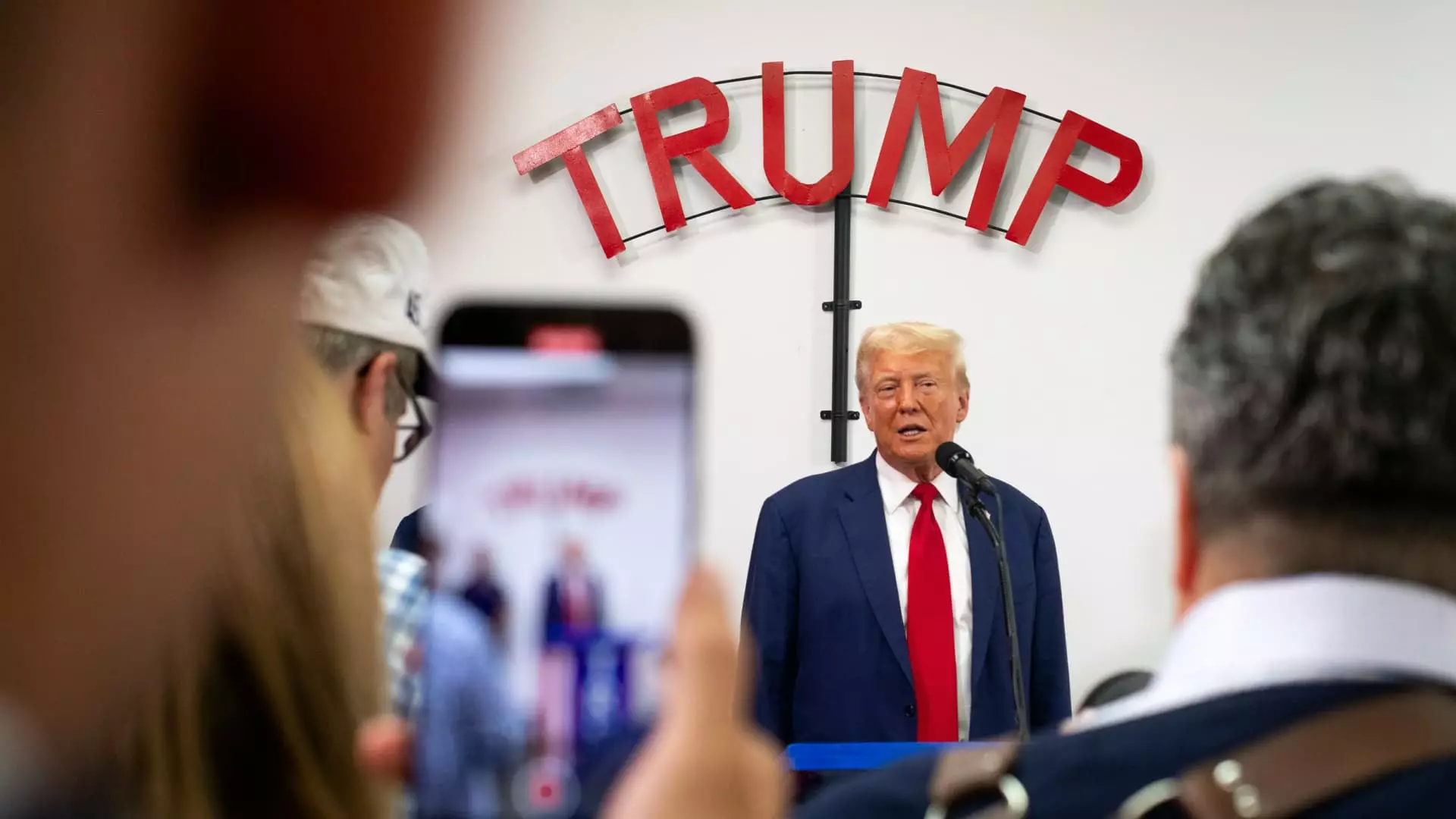In a radical move that synthesizes his political aspirations with the burgeoning world of cryptocurrency, Donald Trump has unveiled a rebranded crypto platform: World Liberty Financial. Initially branded as “The DeFiant Ones,” this new venture serves as an intersection of politics, finance, and technology, positioning Trump as a formidable player in the realm of digital currencies. This pivot not only expands his brand but also offers insights into the intertwining of financial innovation and political strategy.
On social media, specifically X (formerly Twitter), Trump reached out to his substantial follower base—over 90 million—urging them to align with what he claims is a transformative financial movement. In a video clip featuring his voice, Trump espoused a vision of the United States assuming its rightful place as the “crypto capital of the planet.” His rhetoric presents crypto not just as a financial alternative but as a battleground where the ‘elite’ seek to control the masses, as insinuated by his ominous reference to “they” who want to “choke” businesses. Such statements resonate deeply with his core supporters who often view financial institutions and regulatory bodies as antagonistic forces.
However, the ambiguity behind “they” raises critical questions about the exact nature of his accusations. Is he implying that established financial institutions are at odds with innovation, or is this a broader critique targeting governmental oversight? The vagueness serves a dual purpose: it allows him to engage with his base while sidestepping accountability for specific claims.
This crypto initiative notably extends beyond Trump himself, involving key family members, including sons Donald Trump Jr. and Eric Trump, who are heavily invested in the operational aspects of World Liberty Financial. Their enthusiastic announcements signal a familial commitment to revolutionizing finance. Interestingly, the platform appears to blend digital assets with traditional economic structures, as Eric Trump hinted at pathways for investing in “digital real estate.” This notion could encompass both the sale of tokenized assets and interactions within the emerging metaverse, showcasing a forward-thinking approach aimed at appealing to tech-savvy investors.
Such involvement hints at a larger strategy: to present World Liberty Financial as a decentralized alternative to conventional financial systems. As Donald Trump Jr. articulated, their platform aims to democratize finance, challenging the perceived inequalities of access that define current banking practices. This rhetoric speaks to a growing national obsession with decentralization and autonomy, particularly appealing to voters who feel marginalized in the current economic landscape.
The intersection of Trump’s political campaign and his family’s crypto endeavors is not merely coincidental—it is part of a larger strategy to harness the enthusiasm of crypto supporters. With an impressive $25 million reportedly raised from the crypto community, his campaign is tapping into a grassroots movement that is both economically potent and intensely loyal. This relationship signifies a mutual benefit: while Trump’s financial ventures enhance his political capital, they also provide a conduit for crypto advocates to gain representation in the political arena.
The prominence of the crypto agenda as a significant aspect of Trump’s 2024 campaign signals a broader trend within the Republican Party. By aligning himself with the pro-crypto stance, Trump may not only galvanize existing supporters but also attract a new demographic of young, financially literate voters who prioritize innovation.
Despite the fanfare surrounding the announcement, the operational capacities and specific offerings of World Liberty Financial remain unclear. As the family navigates through the complexities of digital banking, they face the challenge of establishing a platform that fulfills its promises while also adapting to regulatory landscapes. Currently, both Donald Jr. and Eric provide differing narratives about the platform’s features, which may create confusion among prospective users and investors.
As with any new venture, the reputation, transparency, and viability of World Liberty Financial will be scrutinized closely in the coming months. The intersection of Donald Trump’s political aspirations and financial ventures may prove to be a lucrative but perilous path, with both significant advantages and potential pitfalls.
As the cryptocurrency landscape continues to evolve, so too will the implications of Trump’s foray into this sector. The interplay of financial innovation, personal branding, and political ambition is at the heart of this significant endeavor, marking a noteworthy chapter in the ongoing convergence of finance and politics.


Leave a Reply